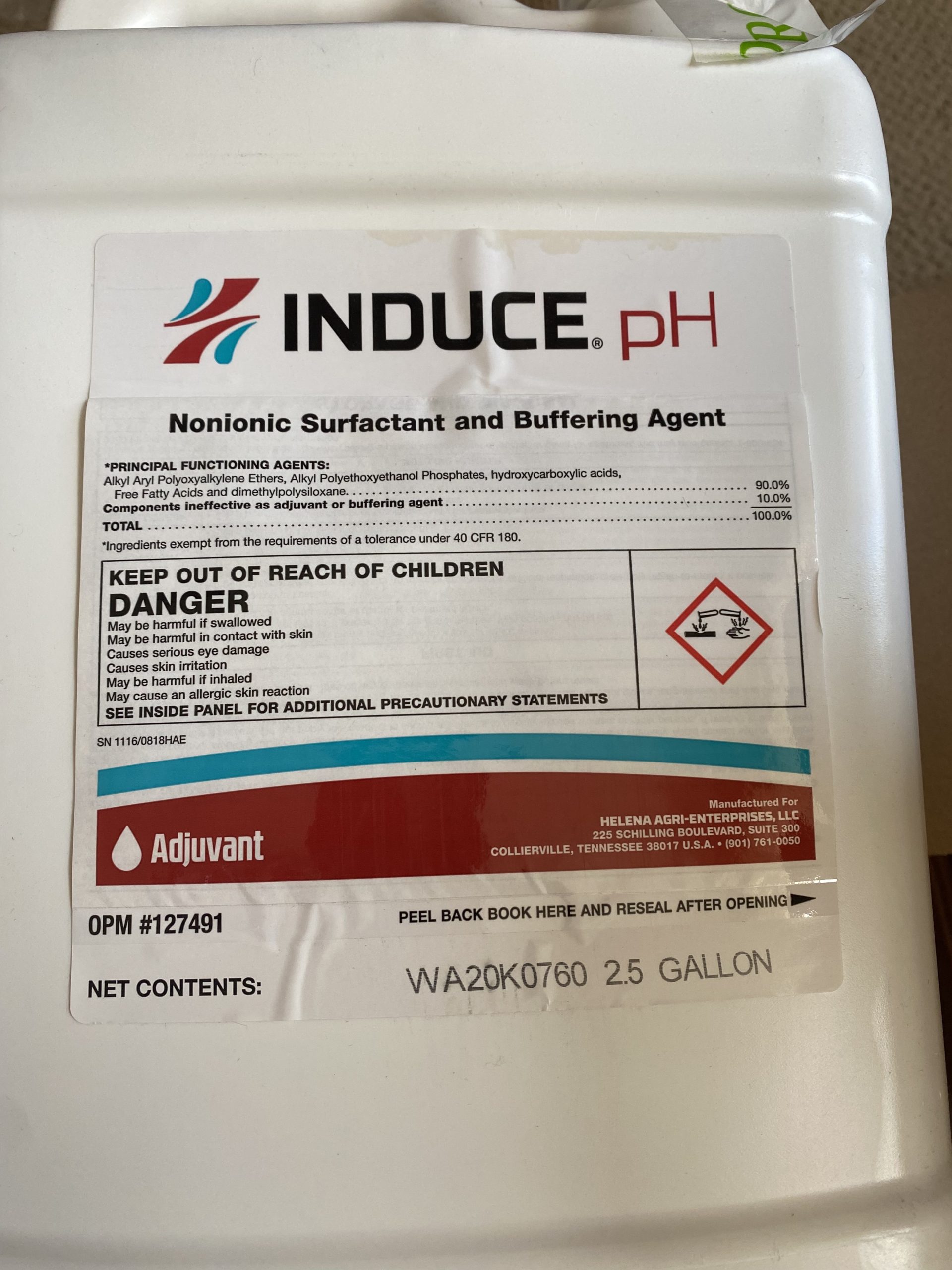Landscapers apply an adjuvant and herbicide spray solution to ensure that a post-emergent herbicide works effectively. Adjuvant spray solutions help boost herbicide performance in one of two ways: they either enhance the activity of recommended adjuvants or improve the application for adjuvants like crop oil concentrates. In short, this means improved weed control for property owners.
Property owners can use various types of adjuvants along with their preferred herbicides. Two common types of adjuvants used today are MSO, which refers to methylated seed oils, and NIS, which refers to nonionic surfactants. Methylated seed oil, aka vegetable oils, are essential crop oils that have been modified. As an oil-based surfactant, methylated seed oil improves the penetration of herbicides through leaf surface waxes and improves the rate of herbicide absorption into plants. However, there is potential for leaf burn with oil-based surfactants like MSO, so it’s essential not to over-apply the adjuvant spray solution.
NIS are ideal for ensuring that herbicides cover the plant more fully; they improve penetration of herbicides onto the leaf surface or through leaf surface waxes by reducing surface tension. Many professional landscaping companies favor NIS because it has a low plant toxicity rate.
What Is Methylated Seed Oil?
As mentioned above, methylated seed oil is vegetable-based and modified to act as an adjuvant. Manufacturers add methanol to change oil compounds, improving its ability to act as an adjuvant.
Advantages of MSO
There are various advantages of spraying plants with methylated seed oil that include:
- Effective replacement of petroleum-based adjuvants / surfactants.
- Help maximize the efficacy of post-emergent herbicides.
- Penetrate plant leaf surface quickly.
- Resist evaporation.
Landscapers favor MSO for plants with highly waxy leaves as it improves the penetration rate of herbicides substantially for these plants.
- Disadvantages of MSO
One key disadvantage of MSO is that it can potentially cause leaf burn. I like to use Prime Source MSO for quinclorac and crabgrass killers.
What Is Non-Ionic Surfactant (NIS)?
Non-ionic surfactants are among the most common adjuvants used with herbicides today. They have no electrical charge and can remain stable in cold water. They are made primarily of fatty acids and alcohols.
Benefits of NIS
Some of the key benefits associated with the use of nonionic surfactants include:
- NIS does not harm plants when they are correctly applied.
- They increase the surface tension of leaves and promote greater ‘wettability.’
- They are more inexpensive than other surfactants.
- They can be used effectively with many types of herbicides.
Disadvantages of NIS
- It may not be ideal for use under some growing conditions.
My favorite NIS for herbicides and fungicides is Induce by Helena.
Natural Ingredients
Some natural ingredients are used as adjuvants with herbicides too. Yucca, for instance, has natural wettability properties, making it an excellent surfactant and wetting agent. Yucca contains saponins that make water ‘wetter’ by breaking down the electrical field of the water molecules. Other common natural ingredients used as surfactants include palm and coconut.
Other Surfactants
Whether you choose a non-ionic surfactant or methylated seed oil like soybean oil or another modified vegetable oil, you should first remember that there are other options when it comes to surfactants. These include:
Wetting Agents
A wetting agent lowers the surface tension of plant foliage and spreads better across the leaf surface of plants. Since most herbicides use water as a carrier, using a wetting agent to promote improved herbicide activity makes sense.
Spreader Stickers
A spreader sticker improves wettability and helps surfactants ‘stick’ to plants. This improves herbicide absorption and functionality.
MSO vs. NIS FAQs
Is methylated seed oil a surfactant?
Yes, methylated seed oil is a surfactant and adjuvant.
What is the purpose of methylated seed oil?
This crop oil is used with herbicides to enhance their performance. MSO improves herbicide absorption and wettability. Always read herbicide labels to choose the best surfactant to use with it.
Is MSO a non-ionic surfactant?
Yes, MSO is a non-ionic surfactant with no electrical charge.
Why are non-ionic surfactants better?
Landscapers and agricultural specialists prefer non-ionic surfactants over many other types of surfactants because they pose less toxicity or harm to plants.
What does MSO do for an herbicide?
MSO works well with herbicides by acting as an adjuvant. It improves herbicide absorption and helps it penetrate the plant leaf more quickly.

